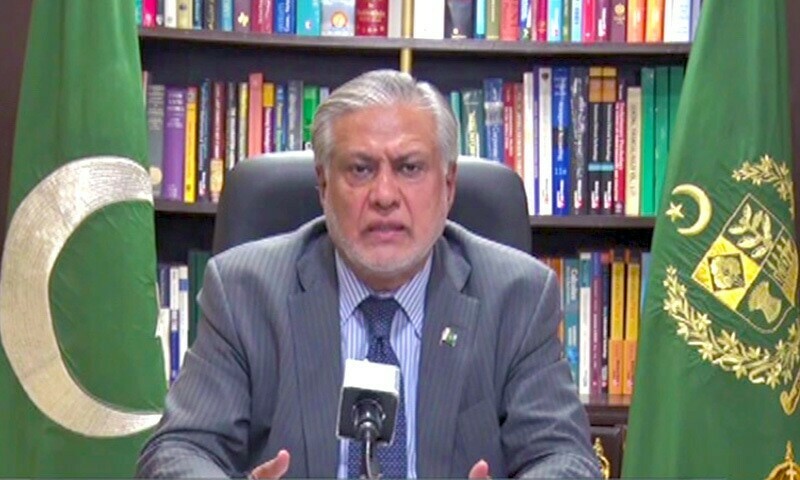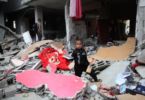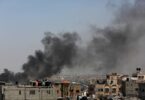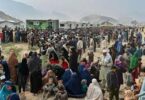Finance Minister Ishaq Dar on Tuesday announced a massive Rs 19 per litre increase in the price of petrol and diesel, which he said was done in line with the International Monetary Fund’s (IMF) demands. According to Dar, the government desired to reduce the oil prices but was compelled to jack up the dearly needed commodity because of its commitments with the IMF on the petroleum development levy. Interestingly, Dar lamented the previous PTI government who played blunder by breaching its commitments with the IMF and lowering the petrol price minimum. Meanwhile, the finance minister did not forget to mention that the price of high-speed diesel had moved up significantly in the international market, resulting in the government’s decision to hike local rates, that is inter alia a quote to satisfy the enraged masses.
Amid a high level of economic turmoil, the coalition government has dropped another bombshell on the public in the name of national interest adding to their already miserable economic conditions. The IMF has imposed stringent conditions to ensure that the $3 billion Standby Agreement continues smoothly, while raising the petroleum levy to Rs 60 per litre was one of the requirements of the agreement of the global lender, that has been slapped by the ruling elite without any remorse and hesitation. Meanwhile, the oil and Gas Regulatory Authority (OGRA) has announced a 17.5 pc increase in the producer price of liquefied Petroleum Gas (LPG), as well as a 13.5 pc raise in the LPG consumer sale price for August that resulted an upsurge in the LPG price by Rs 281.5 per domestic cylinder of 11.8 kg. The current increase in the prices of LPG and petroleum products would surely hit a new wave of inflation in the country.
Pakistan was hit by a persistent political upheaval and economic frailty over the past one and half years and still passes through a crucial period in its history. The years long financial mismanagement, grave repercussions of COVID-19, global energy crises and past year’s record super floods coupled with unceasing political anarchy practically nose downed the South Asian economy. The global slowdown in energy prices provided significant relief in the headline inflation for the second straight month to 28.3 percent in the current month, 29.4% in June as compared to around 38 percent in the previous months since January 2023. However, the recent increase in the prices of energy products is likely to reverse the improvement and a new Tsunami of price hikes is to ruin all previous economic relief to the public and political gains of the ruling coalition government.
Historically, Pakistan passed through a crucial period and Pakistanis felt the brunt of economic turmoil that prevailed in the country over the past year. The rupee plunged a record low against dollar and other regional competitors, food prices jumped by over 40%, transport fares increased by 20 percent, while rapid shutdown of industry and massive unemployment projected the poverty level to 37.2 % in the current year. The ruling coalition government has hardly averted the economic collapse through striking $3 billion Stand by arrangement with the IMF and persistent economic cooperation from friendly nations including Saudi Arabia, the UAE, China and others. The IMF handed over a long list of demands/ economic reforms to the government and increase in petroleum levy, extension in tax network and reduction in non development expenses were the important elements of that agenda that is essential for economic revival but has a heavy price for the public, businesses and society.
Ironically, after the national exchequer filled with the begged money including foreign loans, remittances and monetary deposits by the friendly nations, the government disbursed billions of rupees in the name of development funds, while the Prime Minister and his aides started their election campaign by distributing free laptops, renovation of holy shrines and construction of roads and streets in their respective constituencies ahead of crucial election in the country. The rulers had always demanded sacrifice from the public and poor masses paid a heavy prices of the mistaken policies and bad choices of their rulers throughout in history. The incumbent PML-N led government planned to install Senator Ishaq Dar as the Prime Minister in the next caretaker setup to continue its so-called pro public policies during that time and ultimately pave the way for the next whole term in power.
A strange cycle of recurrent economic slowdown, energy shortages, low foreign reserves and the need for a bailout package has been a periodic episode throughout in our national life. Each time, leaders demanded sacrifice from the masses to overcome economic weakness and vowed to throw away the begging bowl but compromised their ego for political reasons and did not implement national agenda in true spirit that shaped into an insoluble puzzle for the nation. In fact, our nation could not get out of this magical cycle until and unless Pakistani leaders resist politics of development projects, legacy of subsidies and fake nationalism.







